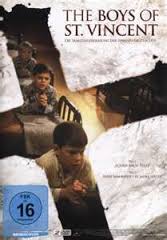
THE BOYS OF ST VINCENT: 15 YEARS LATER
Canada, 1992, 90 minutes, Colour.
Henry Czerny, Sebastian Spence, Lise Roy, David Hewlett, Timothy Webber.
Directed by John N. Smith.
With The Boys of Saint Vincent,’s 15 Years Later, Peter Lavin has left the brothers and is now married with children and responsible job in a company. Brian Lunny, who had defied the brothers, is married with a son, but his brother, Stephen, a victim who was reluctant to admit the abuse, has become a male prostitute, taking drugs, with bitter memories. Kevin works as a carpenter, has a girlfriend, but does not relate well to people, obviously still traumatised.
This film focuses on Peter Lavin, his sudden arrest at home, the charges against him, his fierce denials, his remaining bitterness still influencing all that he says and does. He is abrupt with his lawyer, refusing to admit responsibility, advised to go to see a psychiatrist, which he does, telling his life story, his being an orphan, his finding refuge from sexual issues, ‘terrifying’, in the Brothers’ community, but asserting that he has married, has children, with a job. He asserts that his hard childhood has not made him hard but has prepared him for life, not soft and needy, but able to understand life as it is, not fantasising about it. His wife is bewildered, cannot believe the charges, or that he has remained reticent about his behaviour as a brother.
Kevin is subpoenaed to appear before the courts but tears up the document and refuses. He works alone, is angry in a bar and starts a fight, his girlfriend trying to understand him and, taking some strong stances, giving him advice which he violently rejects. Brian Lunny is concerned when Stephen suddenly appears after some years, antagonistic towards the Catholic Church, daring one of his nephews to go to communion and then move to the end of the line and receive it again – to the amusement of his mother but not of his father.
There is a strong sequence which raises the question of whether a pedophile can change. Peter gives a little boy a lift, is attracted, fantasises about the boy’s body – but does not molest him. He tells this to the psychiatrist, and also goes to confession. The urges remain.
What is interesting in view of later Royal Commissions and government enquiries in countries like Ireland and Australia, this film shows a Royal Commission in Canada in the early 1990s, a judge presiding, a legal team asking questions, especially of the authorities at the time of the abuse who are all in denial, the government superintendent for the welfare of orphans, the police chief who had previously wanted a report with all sexual references taken out, claiming that he had an accident some years earlier and that it hindered his memory, other officials denying any knowledge of the charges. There is an attempt to discredit the detective who did all the investigations and collected the signed witness statements. The archbishop’s assistant also appears, evasive in his memories and pointing out that what is now known was not known then.
The screenplay uses the device of having a talkback radio personality taking calls which comment on the situation: from assertions that this is all an attack on the Church to comment that if celibate priests are put in these situations, no wonder they behave like this.
In the court, Stephen Lunny is cross-examined, documents brought to light that he has strong criminal record, that he was arrested for being a male prostitute, that he was a party to abuse in his years in St Vincent’s and is completely humiliated – and then taking his life.
The final twenty minutes of the film are quite powerful, still worth seeing to experience Kevin’s trauma and his appearance on the stand, his recounting the initial abuse in detail (with flashbacks), that he had become ‘Brother’s boy’ and, without looking at him in court, pointing his finger, identifying Brother Lavin. These scenes are important in revealing something of the character and mentality of an abuser. The psychologist draws him out and Peter Lavin explains his life in some detail, his three foster homes, in the orphanage, his fear of sexuality, the psychiatrist naming his loneliness and his deep longing for some love and his finding it in Kevin. The audience has moments of compassion.
After Kevin’s testimony, Peter and his wife avoid a yelling press pack and go to a private room where he is confronted by his wife who questions him as to whether he has touched his own children. His grim bitterness takes over. He tells his wife to ask her children. His surprising outburst is to say that he is and always has been a martyr. He calls the boys little lying bastards. At the end of the film, he is left alone – angrily pounding his fist on a table, pounding again and again.
This is powerful drama, still relevant, still disturbing.